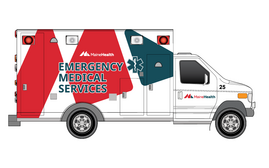Processing Your Payment
Please do not leave this page until complete. This can take a few moments.
- News
-
Editions
-
- Lists
-
Viewpoints
-
Our Events
-
Event Info
- Women's Leadership Forum 2025
- On the Road with Mainebiz in Bethel
- Health Care Forum 2025
- On The Road with Mainebiz in Greenville
- On The Road with Mainebiz in Waterville
- Small Business Forum 2025
- Outstanding Women in Business Reception 2025
- On The Road with Mainebiz in Bath
- 60 Ideas in 60 Minutes Portland 2025
- 40 Under 40 Awards Reception 2025
- On The Road with Mainebiz in Lewiston / Auburn
- 60 Ideas in 60 Minutes Bangor 2025
Award Honorees
- 2025 Business Leaders of the Year
- 2024 Women to Watch Honorees
- 2024 Business Leaders of the Year
- 2023 NextUp: 40 Under 40 Honorees
- 2023 Women to Watch Honorees
- 2023 Business Leaders of the Year
- 2022 NextUp: 40 Under 40 Honorees
- 2022 Women to Watch Honorees
- 2022 Business Leaders of the Year
-
-
Calendar
-
Biz Marketplace
- News
-
Editions
View Digital Editions
Biweekly Issues
- April 21, 2025 Edition
- April 7, 2025
- March 24, 2025
- March 10, 2025
- Feb. 24, 2025
- Feb. 10, 2025
- + More
Special Editions
- Lists
- Viewpoints
-
Our Events
Event Info
- View all Events
- Women's Leadership Forum 2025
- On the Road with Mainebiz in Bethel
- Health Care Forum 2025
- On The Road with Mainebiz in Greenville
- On The Road with Mainebiz in Waterville
- + More
Award Honorees
- 2025 Business Leaders of the Year
- 2024 Women to Watch Honorees
- 2024 Business Leaders of the Year
- 2023 NextUp: 40 Under 40 Honorees
- 2023 Women to Watch Honorees
- 2023 Business Leaders of the Year
- + More
- 2022 NextUp: 40 Under 40 Honorees
- 2022 Women to Watch Honorees
- 2022 Business Leaders of the Year
- Nomination Forms
- Calendar
- Biz Marketplace
Community Health Options ends 2016 with a loss
 Courtesy of Maine Bureau of Insurance
Eric Cioppa, Maine's insurance superintendent, shown in Washington, D.C. On Monday, Maine Bureau of Insurance posted its monthly report on Community Health Options.
Courtesy of Maine Bureau of Insurance
Eric Cioppa, Maine's insurance superintendent, shown in Washington, D.C. On Monday, Maine Bureau of Insurance posted its monthly report on Community Health Options.
Community Health Options, the Lewiston-based nonprofit health insurer created under the Affordable Care Act, ended 2016 with preliminary total net losses of $58.3 million, according to a report issued Monday by the Maine Bureau of Insurance.
The monthly reporting was implemented by Eric Cioppa, superintendent of Maine's Bureau of Insurance, last March after CHO posted a net loss of $31 million in 2015. The company also was required to set aside a $43 million premium deficiency reserve at the end of 2015 to cover CHO's estimated premium shortfall in 2016.
A final tally of CHO’s 2016 performance won’t be available until March to allow for a reconciliation of claims, expenses and revenues in December.
Other preliminary financial metrics for December reported by the bureau for CHO:
Incurred claims were 14.6% lower than plan in December and paid claims were 8.1% lower for the month.
Year-to-date incurred claims were 3.3% lower the the plan and paid claims for the year were 0.3% higher (however, some 2016 claims are still being paid so a final accounting won’t be known until the annual report is filed in March).
Membership at the end of December was 8.5% lower than plan and approximately 9.9% lower than at Dec. 31, 2015. Average monthly membership for the year was 4.4% lower than planned.
Roughly 76% of CHO’s membership consisted of individual insurance. The remainder is small group insurance (23%) and large group (1%).
Claims and expenses for the year were generally consistent with the plan and CHO’s preliminary estimate is that capital and surplus will be $37.4 million.
Looking ahead to 2017, the bureau reported that CHO is in a much better financial position than it was at the same point a year ago. Its reported membership is 48,000, compared to approximately 84,000 a year ago — in part because the company is withdrawing from the New Hampshire market, where its 10,219 members in November accounted for 14.4% of CHO’s total business.
The bureau reported that the lower membership, coupled with higher premiums approved for 2017, put CHO in a much better capital position this year compared to last.
“Its 2016 Risk-Based-Capital ratio is expected to be approximately 16.8% less than projected by the plan, but lower membership combined with better-priced insurance products best positions CHO to operate successfully in 2017,” the bureau concluded in its report.
CHO's response: Improving trends
Michael Gendreau, CHO’s director of outreach, education and communications, told Mainebiz the insurer is encouraged that its trends were improving as it headed into a new year of serving the individual, group and large group markets in Maine.
“Yes, there was a loss [for 2016],” he said, “but we’re starting to see a trend of our monthly claims being lower and our administrative costs being lower. It gives us good momentum going forward. We’re in a much better position than we were at this point a year ago.”
Last August, the bureau of insurance approved an average 25.5% premium hike for CHO, with Cioppa writing in his decision that the increase was necessary to help put the company on a "sustainable" path. "Health Options cannot recapture its past losses, but, under the circumstances presented, it must be permitted to close this gap going forward," he wrote in his decision approving CHO's 2017 rate hike request.
Gendreau acknowledged that there remains huge uncertainty about the future of the ACA’s insurance marketplace, and whether it will even continue to exist under whatever replacement plan the Trump administration and the Republican-led Congress might come up with in the coming year. Even if the ACA health insurance marketplace dissolves, Gendreau says CHO remains committed to its nonprofit mission of being an alternative consumer-operated and oriented health insurance company, or CO-OP.
“Regardless of how it all shakes out, we will adapt and adjust,” he said.
Gendreau highlighted a pilot program that CHO launched with Maine Medical Center to reduce hospital readmissions and a similar initiative with St. Mary’s Hospital in Lewiston to better manage unnecessary utilization of the emergency room as two successful initiatives the insurer launched with its networks in 2016 that improved health of its members and lowered overall health costs.
Editor's note: This story has been updated to clarify that CHO's net loss in 2015 was $31 million and that an additional $43 million that was set aside at the end of the year was to cover its estimated premium shortfall in 2016.
Read more














Comments